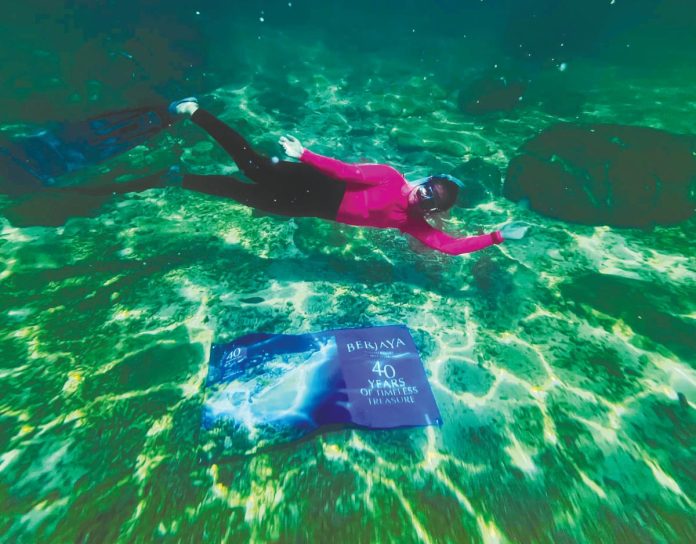TIOMAN: At a time when resorts are slashing jobs and chasing quick returns, Berjaya Tioman Resort is charting a different course, celebrating its 40th anniversary with a firm stand on sustainability, year-round employment and deep community roots.
Far more than a beachfront getaway, the resort has grown into a pillar of the island’s identity, weathering shifting travel trends, economic downturns and climate pressures while also holding fast to its rustic charm and environmental values.
“This is not just a resort. This is a community,” said Berjaya Land Bhd assistant general manager Mohamed Syairoz Mohd Odman during a recent media visit held in conjunction with the anniversary.
Opened in 1985 as Berjaya Group’s first resort venture, the property has since become one of Malaysia’s best-known island destinations, a favourite among international travellers drawn to its unspoiled beauty and grounded hospitality.
But behind the postcard views lies a deeper story of job creation, local empowerment and long-term ecological care.
“We have always seen ourselves as more than a business. Our aim is to be a responsible partner to Tioman’s people and its environment,” said Mohamed Syairoz.
Today, Berjaya Tioman Resort employs 167 staff, more than half of whom are native islanders or long-term residents. Several are second-generation employees, following in the footsteps of their parents.
“We have had families grow with us. That loyalty, that emotional connection, it is a huge part of why we have made it to 40 years,” said resort project and IT manager Melvin Foong.
Unlike many island resorts that scale down during the monsoon, Berjaya Tioman operates year-round.
When rough seas drive tourist numbers down between November and February, the resort doubles down on deep-cleaning, upgrades and staff training.
“We have never retrenched people just because it is off-season. We use the downtime to invest in our people and our facilities,” said Mohamed Syairoz.
Even during full closures, staff are redeployed. Some help with renovations, others are temporarily placed at Berjaya properties on the mainland.
“It is about protecting livelihoods, not just profits,” he added.
Sustainability runs deep in the resort’s DNA. Located near marine parks and sensitive coastal zones, Berjaya Tioman has phased out most single-use plastics, installed refillable water dispensers, and replaced disposable containers in its food and housekeeping operations with reusable alternatives.
“We also educate our team about the impact of waste and they take that awareness home,” said Foong.
Beyond the resort grounds, its contribution to the island is tangible. Its swimming pool and football field, the only ones in Tioman, are open to villagers, free of charge.
“There is no public pool here, so we let kids come in to train. Some of them go on to represent their schools. It is the least we can do.”
Many of the resort’s international guests, especially from Europe and China, return year after year, often for extended stays.
With an average occupancy rate above 70% year-round, Berjaya Tioman is proving that responsible tourism and commercial success can go hand in hand.
Looking ahead, the resort plans to expand its ecotourism offerings, including guided nature walks and marine education programmes, while deepening its investment in staff development and community outreach.
“People come here not just for the beach, but also for that sense of connection, to nature, to people, to something real,” said Foong.
The resort remains anchored by a core belief that Tioman’s success is their success too.
Foong said: “We want Berjaya Tioman Resort to be part of the island’s future, not just as a business, but also as a caretaker of its soul.
“Tioman is our home. Our survival depends on the health of this island, socially and ecologically. If we stay true to that, there is every reason to look forward to the next 40 years.”







